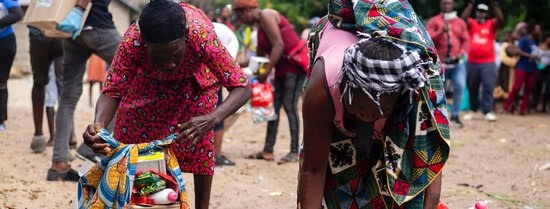United Nations Sustainable Development Goal (SDG) 3.8 states that health coverage should be universal by 2030. This is challenging in rural areas. To address this challenge, mobile outreach teams of healthcare workers visit a fixed set of remote sites to provide healthcare services.
- Speaker
- Date
- Friday 2 Sep 2022, 12:00 - 13:00
- Type
- Seminar
- Spoken Language
- English
- Room
- 1-13
- Building
- Sanders Building
- Location
or online via Zoom
United Nations Sustainable Development Goal (SDG) 3.8 states that health coverage should be universal by 2030. This is challenging in rural areas. To address this challenge, mobile outreach teams of healthcare workers visit a fixed set of remote sites to provide healthcare services.
Dynamics in demand and supply cause once rational site-to-team assignment decisions to become far from optimal. This paper considers the problem of reassigning sites to maximise effectiveness.
Outreach teams commonly have a high degree of decision-making autonomy, and there are good reasons to maintain this. Since reassignment requires coordination, the key question for decision makers is whether and when a decentralised approach is effective.
We examine the trade-off between the level of centralisation and effectiveness and study how design choices and information gaps brought about by centralisation affect this trade-off. We propose a mixed integer programming model for centralised site reassignment.
We extend this model to represent a decentralised approach where teams collaborate in team meetings to reassign sites and develop a set of simple decision rules for this approach. We use empirical data from six country outreach programmes of the non-governmental organisation MSI Reproductive Choices.
Our results suggest that, when properly designed, simple decentralised decision-making systems tend to perform close to or even outperform centralised decision-making. We develop several propositions useful for decision makers in humanitarian organisations when making design choices, taking account of context. In particular, we show that decentralised site reassignment provides a feasible and effective alternative to centralised approaches in many contexts.
Coordinators
- Michal Mankowski
- Olga Kuryatnikova
- More information
Secretariat Econometrics
Phone: +31 (0)10 408 12 59/ 12 64
Email: eb-secr@ese.eur.nl- Related links
- Department of Econometrics

